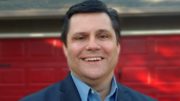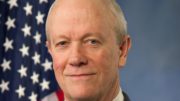U.S. Attorney Benjamin Wagner drives a mini-van.
This may seem like a strange choice for the region’s top federal prosecutor, hand-picked by President Barack Obama to be the scourge of financial fraudsters and marijuana growers alike, but Wagner is nothing if not practical.
Defending his office’s enforcement of federal marijuana laws during a speaking engagement last week, the eastern district U.S.A. estimated that “loosely described” dispensary operators make up roughly 100 out of every 3,000 indictments in his office. Washington and Colorado, which recently approved recreational use of marijuana, face less federal intervention because their laws are written better, Wagner added, whereas California is a poorly regulated “free-for-all.”
A Trinity County man with a large cultivation operation was the most recent to be successfully prosecuted by Wagner’s office for marijuana-related crimes. He was sentenced in March to five years in prison.
The office has announced more methamphetamine-related drug cases in recent months.
“The DEA is one of our biggest customers,” Wagner acknowledged.
But whereas local district attorneys around the state prosecute mostly criminal cases, the federal courts are more likely to take on civil cases. Describing his role as a “free safety” that roams the backfield and tackles whatever breaks loose of local jurisdictions, Wagner said he can afford to be picky when it comes to which cases he takes, accounting for his office’s 98-percent conviction rate. Ninety percent of the people he convicts get there via plea bargains, which Wagner said are largely misunderstood.
“Plea bargaining is really what makes the system work,” he said. Without it, he added, the system would “grind to a halt.”
The system is already starting to grind, thanks to sequestration-related hiring freezes and political gamesmanship. Wagner’s office is nursing about 15 vacant positions, and the U.S. District Court hasn’t been able to get any of President Obama’s judicial nominees past a withholding GOP-led Congress.
Eastern district federal judges juggle an average caseload of 1,200, when the national average is 135, said U.S. District Court Judge Morrison England.
“I’m not happy with the fact that in our district we have such a high caseload,” Morrison told a room full of criminal justice nerds. “I wish Congress would vote to give us more judges, but that’s their prerogative.”
Still, Wagner said office steers clear of politics, even with his boss, Attorney General Eric Holder, in the hot seat for the Justice Department’s subpoena of Associated Press phone records.
“Eighty-five to 90 percent of what our office does is the same administration to administration,” said Wagner, who was appointed to the position in 2009. The last 10 percent has to do with what priorities are set and how resources are allocated, he added.
The office continues to make the most hay with financial prosecutions. The office collected a record $91 million in civil settlements and fines last year. A civil fraud settlement with the Tenet/Redding Medical Center netted $54 million.
And yet Wagner sticks with a mini-van.




